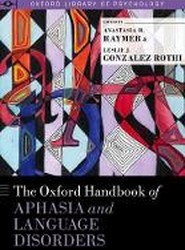(To see other currencies, click on price)
MORE ABOUT THIS BOOK
Main description:
Coercive interactions and conflict are commonplace in close relationships and families, friendships, and teacher-student relationships in schools. Coercion and conflict can be used to grow stronger relationships, or they can lead to the deterioration of relationships, undermine efforts to socialize and teach youth, and lead to the development of mental health problems in children and parents. Coercion theory helps shed light on how these daily interaction dynamics
explain the development of aggression, marital conflict, depression, and severe mental health problems in families and how they undermine school safety and effectiveness.
The Oxford Handbook of Coercive Relationship Dynamics features the most recent, innovative applications of coercion theory to understanding psychopathology, developmental theory, and intervention science. The volume provides a multidisciplinary perspective on coercive processes, origins, and social functions to anchor coercion theory from multiple perspectives and to lay a theoretical and empirical foundation for innovative expansion of the coercion model to new areas of research. The
volume gives specific examples of how the basic coercive processes underlie the development of significant suffering in children and families, and chapters include clinically oriented discussions of research on the role of coercion in the causation and amplification of problem behavior and emotional distress.
The internationally renowned authors of this volume highlight scientific advances in the study of coercive dynamics in families and close relationships, account for physiological and genetic correlates of coercive dynamics, and discuss the application of coercion theory to effective interventions that improve the quality and well-being of children, adolescents, and adults. This volume is an invaluable resource on behavioral science methodology, developmental theory, and intervention
science.
Contents:
1. Introduction: Coercive Social Processes
James Snyder, Thomas J. Dishion
2. Coercion Theory: The Study of Change
Gerald R. Patterson
3. Gene-Environment Interplay in Coercion
Kirby Deater-Deckard, Nan Chen, Shereen El-Mallah
4. Physiological and Developmental Mechanisms of Emotional Lability in Coercive Relationships
Theodore P. Beauchaine, Maureen Zalewski
5. An Evolutionary Framework for Understanding Coercion and Aggression
Thomas J. Dishion
6. Parental Depression and the Development of Coercion in Early Childhood
Julia D. Reuben, Daniel S. Shaw
7. A Relational Frame Theory (RFT) Analysis of Coercive Family Process
Lisa W. Coyne, Darin Cairns
8. Coercive Family Processes and the Development of Child Social Behavior and Self-Regulation
James Snyder
9. Fathers and Coercion Dynamics in Families: Developmental Impact, Implications, and Intervention
David S. DeGarmo, Kristin B. Nordahl, Gregory A. Fabiano
10. Coercion and Contagion in Child and Adolescent Peer Relationships
Timothy F. Piehler
11. Peer Coercion and Electronic Messaging
Samuel E. Ehrenreich, Marion K. Underwood
12. The Paradox of Love in Adolescent Romantic Relationships: Upregulation and Coercive Dynamics as Predictors of Depressive Symptoms
Thao Ha, Hanjoe Kim
13. Aggression and Coercive Behaviors in Early Adult Relationships: Findings From the Oregon Youth Study-Couples Study
Hyuong K. Kim, Joann Wu Shortt, Stacey S. Tiberio, Deborah M. Capaldi
14. Coercion, Invalidation, and Risk for Self-Injury and Borderline Personality Traits
Sheila E. Crowell, Mona Yaptangco, Sara L. Turner
15. Interrupting Coercion: The Iterative Loops Among Theory, Science, and Practice
Marion S. Forgatch, Melanie M. Domenech Rodriguez
16. Violent Coercion in Intimate Relationships: Emerging Interventions
Amie Langer Zarling, Rosaura Orengo-Aguayo, Erika Lawrence
17. The Role of Anxiety in Coercive Family Processes With Aggressive Children
Isabela Granic, Jessica P. Lougheed
18.Coercion Dynamics and Problematic Anxiety in Children
Michael J. Crowley, Wendy K. Silverman
19. Coercive Process and Intimate Partner Violence in Committed Relationships
Amy M. Slep, Richard E. Heyman, Michael F. Lorber
20. Child-Focused Cognitive-Behavioral Interventions Designed to Reduce Aggression
John E. Lochman, Caroline Boxmeyer, Nicole Powell, Thomas J. Dishion
21. Short- and Long-term Impacts of a Coercion Theory-Based Intervention on Aggression on the School Playground
J. Mark Eddy, Betsy J. Feldman. Charles R. Martinez Jr.
22. From School Bullying to Dating Violence: Coercive Developmental Processes and Implications for Intervention
Ariel A. Williamson, Nancy G. Guerra, Noel L. Shadowen
23. Changing Parental Perspectives of Coercion Dynamics: Essential Therapist Skills in Using Videotaped Feedback Interventions
Justin D. Smith
24. Reducing Coercion in Schools: The Impact of School-wide Positive Behavioral Interventions and Supports
Robert H. Horner, Kent McIntosh
25. Transforming Coercive Into Constructive Processes With Families of Children With Developmental Disabilities and Severe Problem Behavior
Joseph Lucyshyn, Brenda Fossett, Christy Cheremshynski, Lynn Miller, Sharon Lohrmann, Lauren Binnendyk, Sophia Khan, Stephen Chinn, Samantha Kwon, Larry Irvin
26. Coercion and Public Health
Anthony Biglan
27. An Introduction to Using Multivariate Multilevel Survival Analysis to Study Coercive Family Process
Michael Stoolmiller
28. Coercion, Power, and Control in Interdependent Relationships: A Dynamic Systems Perspective
George W. Howe, Laura Mlynarski
29. Coercion Dynamics: Past, Present, and Future
Thomas J. Dishion, James Snyder
Index
PRODUCT DETAILS
Publisher: Oxford University Press (Oxford University Press Inc)
Publication date: March, 2016
Pages: 432
Dimensions: 178.00 x 260.00 x 38.00
Weight: 910g
Availability: Available
Subcategories: Psychology
From the same series
Thomas H. Ollendick
Robert F. Krueger
Michaela A. Swales
Pascal Belin
Shaun Gallagher
Kieran C.R. Fox
W. Stewart Agras
Shane J. Lopez
Leslie J. Gonzalez Rothi
Maryanne L. Fisher
Jane Edwards
Seth J. Schwartz
Stephen G. Harkins
Andrew C. Papanicolaou
Robert J. DeRubeis
Thomas A. Widiger
Michael Waldmann
Matthew K. Nock
Stephen M. Kosslyn
Stephen M. Kosslyn
Phillip M. Kleespies
Kenneth J. Sher
Kieran T. Sullivan
Kenneth J. Sher
Kenneth J. Sher
Amy Wenzel
Jane Edwards
Marc Marschark
Arthur M. Nezu
Robert Turner
Jeffrey Jensen Arnett
Stephen P. Hinshaw
Turhan Canli
Ken Laidlaw
Ying-yi Hong
Michael W. O'Hara
Nichola Rumsey
Matthew K. Nock
David H. Barlow
Susan David
Gail Steketee
Howard S. Friedman
Julie Simner
Lisa J. Miller
Thomas Widiger
Michael L. Wehmeyer
Simon Liversedge
Jonathan S. Comer
Jeffry A. Simpson
Marjorie Taylor
Donald H. Saklofske
William Ming Liu
Judy Illes
Elizabeth Vera
Susan D. Clayton
Thomas Widiger
Lisa J. Miller
Paul Kennedy
Suzanne Segerstrom
Edmund O. Acevedo
Valerie Maholmes, Ph.D., CAS
J. Gayle Beck
Richard M. Ryan
Charles M. Morin
Janice H. Laurence
Michael Nash
Elizabeth M. Altmaier
Shane J. Lopez
Jacob A. Burack
Jon E Grant
Robert K. Conyne
Simon Liversedge
Judy Illes
Peter E. Nathan
David H. Barlow
Susan Folkman
W. Stewart Agras
Christopher Plack
Paul Fuchs
James N Butcher
Martin M. Antony
Ulf Ziemann































































































